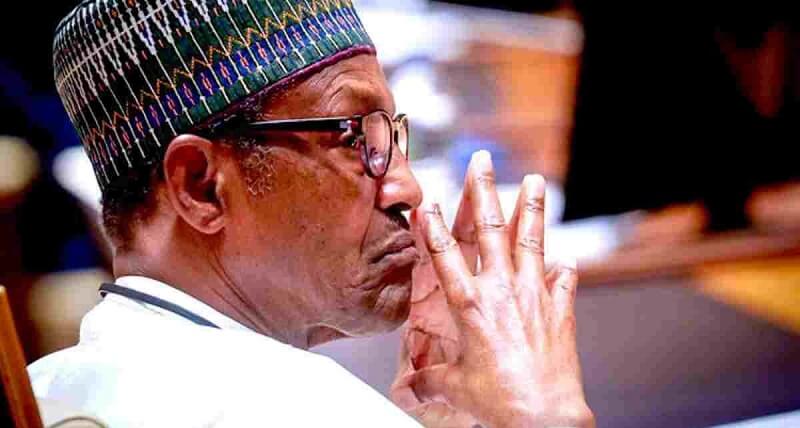2015- 2022: Nigeria’s Economy Weaker, Human Development Plummets Under Buhari
In his inaugural speech on May 29, 2015, Nigeria’s President Muhammadu Buhari promised to attack the country’s economic woes frontally “through revival of agriculture, solid minerals mining as well as credits to small and medium size businesses to kick – start these enterprises.”
Similarly, after his re-election in 2019, the President promised to take 100 million Nigerians from poverty to prosperity in the next 10 years.
Advertisement
“With leadership and a sense of purpose, we can lift 100 million Nigerians out of poverty in 10 years.” he said.
However, checks by THE WHISTLER show that not only has Buhari been unable to deliver on his campaign promises, but the country has also retrogressed in thematic areas of human development under his watch.
The Human Development Index is a statistical tool used to measure a country’s overall achievement in its social and economic dimensions. The social and economic dimensions of a country are based on the health of people, their level of educational attainment and their standard of living.
Here is how the present government has fared in these three thematic areas;
Advertisement
Economy
Data from Nigeria’s World Development Indicators obtained from the World Bank, show that the country’s Gross National Income (GNI) per capita, converted by purchasing power parity (PPP) dropped 70 points from 5320 in 2014 to 5250 in 2021 while the Gross Domestic Product (GDP) also decreased by 19.2% within the specified time frame.
Buhari had promised to grow Nigeria’s economy by at least 10-12 percent annually and make it one of the world’s fastest-growing emerging economies in the world, however the economic growth rate is at an abysmal 3.6% putting it at 40th position out of 54 African countries.
As the country’s economy takes a downward spiral, population growth has continued to rise. According to the International Monetary Fund (IMF), rapid population growth that does not reflect positively on economic growth indices poses myriad of challenges that are both privately and publicly daunting. Moreso, if economic growth does not keep up with population growth, the economy will not be able to support a rapidly increasing population, indicating rising poverty levels.
Advertisement
Education
According to the latest Nigeria Development Update released by the World Bank, more than 18.5 million children are out of school in Nigeria making it the country with the highest number of out of school children in the world. With the estimated population of children (0-14) at 90 million, this means 1 in 5 Nigerian children do not have access to elementary education.
Similarly, the Nigeria National Educational Survey conducted by the National Population Commission said around 18 percent of Nigerian girls aged 6 to 16 were out of school.
Nigeria’s low public expenditure on education and health reflected its standing as one of the countries with the lowest Human Capital Index (HCI) in the world.
The United Nations Educational, Scientific and Cultural Organisation (UNESCO) Education for All agreement, also known as the Dakar framework recommends that government take the lead in increasing financial commitments to education, proposing that 15 per cent to 20 percent of annual budgets be earmarked for education.
Advertisement
However, under Buhari’s administration, Education Sector budget fell to its lowest in 10 years, decreasing from 10.7% in the 2015 budget proposed by former president, Goodluck Jonathan to 5.68% in 2021.
Health
With only 4 doctors per 10,000 persons, healthcare in Nigeria is one of the worst in the world, worsened by the brain drain of medical professionals who are seeking greener pastures abroad. Despite government promise to expand access to affordable healthcare, hospitals are still largely understaffed and underequipped leaving citizens with no option but to patronize private healthcare providers.
According to the World Bank, private health expenditure accounts for 71.3% of Nigeria’s current health expenditure, while domestic general government health expenditure (GGHE-D) as percentage of general government expenditure stands at a paltry 3.8%.
This negates the Abuja Declaration by African leaders in 2001 to allocate, at least, 15 per cent of yearly national budgets to health which is the standard set by the World Health Organisation (WHO)
According to the United Nations Development Programme, Nigeria ranks 161 among 189 countries on the HDI index with an HDI of 0.539 effectively putting it among countries with low human development.
While access to information on the major metrics of calculating HDI is largely unavailable on the website of the Nigeria Bureau of Statistics (NBS), it is an important metric for questioning national policy choices and priorities as it simplifies and captures only part of what human development entails.



